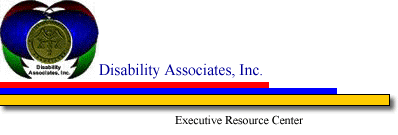
| Ask a Question | All Categories | Products |
Keeping Records List of Categories
Page 1 Page 2 Page 3
- What is meant by accounts payable?
- What's an accounts receivable?
- What's an accounting method?
- What's the cash accounting method?
- What's the Accrual accounting method?
- Do I need to keep all receipts?
- How
important is record confidentiality?
- How does your ACM Pro protect client records?
- What is meant by accounts payable?
Accounts payable are amounts that your business owes to others. Example: You pay for a local newspaper ad on credit. The amount you owe to the paper would be part of your accounts payable.
To top
- What's an accounts receivable?
Accounts receivable are the amounts owed to your business that you expect to receive in payment. Example: You represent a disability claim and you win. You bill the client for $2500 for services rendered. That $2500 is an amount your business expects to receive from this client. Therefore, the $2500 should be placed into the accounts receivable category.
To top
- What's an accounting method?
An accounting method is the accounting basis used by a business. There are two accounting methods. These are cash and accrual.
To top
- What's the cash accounting method?
The cash accounting method is used by businesses as a means of keeping track of income and expenses. In the cash basis method of accounting, a sale or expense is counted at the time the transaction occurs.
To top
- What's the Accrual accounting method?
The Accrual accounting method is used by businesses as a means of keeping track of income and expenses. In the Accrual basis method of accounting, a sale is counted at the time the transaction occurs and expenses are counted when the goods or services are actually received or paid. Example: You order 1000 envelops. You do not minus this expenses until the envelops are received and the bill is paid.
To top
- Do I need to keep all receipts?
If you are serious about doing business, you must get serious about record keeping. Requesting and keeping receipts is the best way to prove all deductions taken by your business.
To top
- How
important is record confidentiality?
Record confidentiality is extremely important in a disability claim. Take every precaution to protect the privacy of all records associated with a Social Security disability claim. This includes medical records, forms, contracts and fee records.
To top
- How does your ACM Pro protect client records?
The ACM Pro has a built-in security feature that prevents anyone from accessing a client's personal records. This single ACM security feature allows our students to safely transport client information in laptops and other portable devices.
To top
Copyright © 2007 - 2012. Disability Associates, Inc. All Rights Reserved.